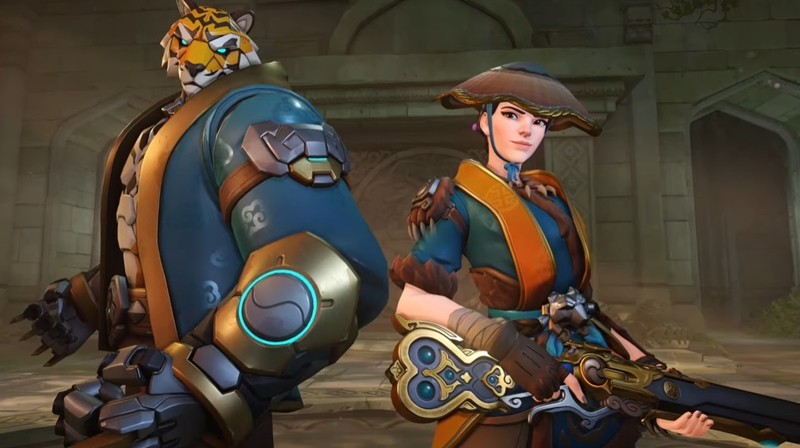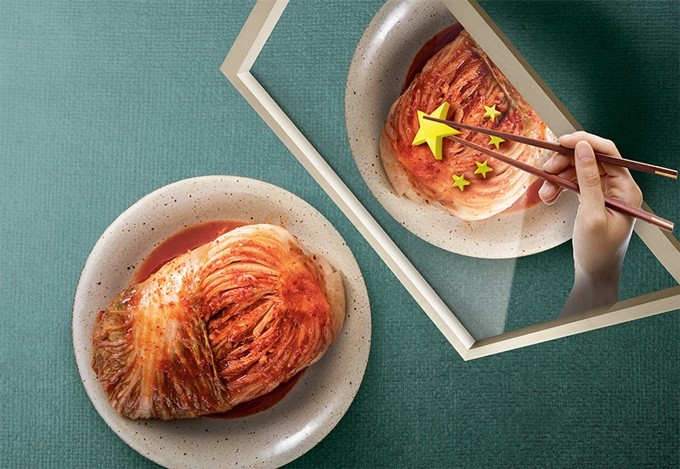If you asked Google, the world’s largest portal service, where kimchi originated, the answer you were given was China. Nobody knows how long the site answered the question this way or even how many people posed the question. However, after the alarm was raised by Korean netizens, Google revised its search engine results to Korea. While this matter was resolved quickly, the cultural conflicts between China and Korea continues to circulate on social media.
When the makers of the mobile game “Shining Nikki“ introduced the Hanbok in the Korean edition of its app in November 2020, online Chinese commentators claimed the clothing had its roots in Chinese culture and therefore should not be included in the Korean edition of the game. Chinese users argued the Hanbok is a copy of Ming's clothes and made the absurd claim that it be labeled as Chinese. Korean users protested the claims but Paper Games, the production company for Shining Nicky relented to the demands of Chinese users and deleted the Hanbok from the game. The backlash from Korean users intensified, and the game manufacturer posted a notice ending special addition to the platform saying, "Paper Games will adhere to love and respect for traditional Chinese culture, and protect the dignity of the country."
In another controversy, Chinese YouTuber "Liziqi" made claims that Kimchi is a traditional Chinese dish. Li Ziqi, who has 14 million subscribers, posted a video of herself preparing the Korean dish in a video called the ‘Last Episode of Life: Life of Nothing’. Li Ziqi is famous for introducing traditional Chinese culture and rural life to her viewers. The video in question shows her harvesting cabbage herself, salting and marinating it in chili powder. She hashtagged the video #ChineseCuisine and #ChineseFood and introduced the recipe in the video as if it were traditional Chinese cuisine. In response, Korean netizens posted criticism directly in the video comment section. They said, "Don't take away Korean traditional food," and "China is trying to steal Korean culture." Chinese netizens also commented, "Thank you for introducing China's food culture," and "People in small countries don't have to care," sparking a war of words between netizens from the two countries. Recently, YouTuber ‘Hamji’ criticized Chinese YouTubers and others who started the so-called ‘Kimchi Northeast Project’, saying that China was the origin of Kimchi. She said, "I think Kimchi or Ssam is definitely a Korean food," and "It doesn't make sense to have an argument over it." Hamji liked the comment under the video of her eating Ssambap that said, "Chinese Xs say that Ssam is their traditional culture now." As word of the content spread around YouTube, Chinese Internet users strongly protested. In the translation process, the expression ‘China X’ was represented as abusive language, adding to the anger of the Chinese people. As a result, a Chinese public opinion poll criticizing Hamji said, "You have to say Kimchi is Chinese food to be forgiven." In response, Hamji delivered her position on the matter on YouTube on January 19th. She said, "There were thousands of comments, so it was hard to read each one, so I pressed 'like' as much as I could," and added, "But I should apologize for sympathizing with the abusive language that disparaged the Chinese." However, she restated "my opinion that Kimchi and Ssam are Korean food remains unchanged." In particular, Hamji said, "I don't understand why you're wasting your emotions on unnecessary arguments," adding, "If I have to say Kimchi is Chinese food to work in China, I won't do Chinese activities."
 |
| ▲ Ash’s skin ‘Tiger Hunter’ of the game ‘Overwatch’ (Photo from Overwatch Official Trailer Rib) |
Overwatch, an American game company produced by Blizzard Entertainment, launched a character skin inspired by tigers and magpies as a the Lunar New Year approached. Earlier, on January 4, Blizzard released a video introducing their Korean themed skin. Through the New Year's Day event for the ‘White Cow Year,’ which began on the 5th of January, you could acquire the ash skins "Tiger Hunters" and eco-skins "Magpie." When the video was released, Chinese netizens protested its release on Overwatch's official Twitter account. One netizen tweeted, "Seollal is a copy of the Spring Festival, so why should Korean-style skins exist?" with disappointment. Korean netizens wondered, ‘Why are they so pushy when New Year's holidays are not only in China?"
The ongoing cultural origin conflict between Korea and China is a hot issue among netizens, but it is also becoming a politically sensitive issue. In fact, Representative Joo Chul-hyun of the Democratic Party of Korea criticized the Ministry of Agriculture, Food and Rural Affairs for its passive response to China's alleged "Kim Chi-won theory" in politics. In November 2020, China's Gwangyoung media, the Global Times, reported that Korean Kimchi is also a kind of Paochai. At that time, the Ministry of Agriculture, Food and Rural Affairs did not speak out in an official capacity, posting only a warning that their reports were not true. In response to this passive attitude, Representative Joo said, "Kimchi was already recognized as an international food standard by the International Food Standards Commission (CODEX) in 2001, and the history and tradition of kimchi should not be damaged."
 |
| ▲ It is common to promote Chinese products as Korean products or to produce and sell Korean fake goods. (Photo from MoneyS) |
In order to understand the historical conflict of cultures between Korea and China, it is important to understand the Northeast Project. The Northeast Project is a large-scale history program that China has been investing huge sums of money in since 2002. The purpose is to study the history of their northeastern region. The Project is a big problem for Korea because through it China is making false claims that Gojoseon, Goguryeo, and Balhae were a part of China. In January 2015, Wu Dawei, China's former foreign minister, said, "If Korea does not claim ownership of Gando, then China will not claim that Goguryeo belongs to them, making it clear that the primary reason the Chinese launched the Northeast Project was to claim sovereignty over Gando. In addition, critics argue the Northeast Project is designed to prevent an ethnic exodus. China is concerned about minorities seeking to immigrate and is wary of the possibility of ethnic Koreans living in China, who have a strong sense of national consciousness seeking independence from the nation. Therefore, China has no choice but to push for the Northeast Project to prevent ethnic Koreans living in China from leaving especially if the two Koreas were to reunify.
China is using this project to constantly distort history. In response, Jung Eui-yong, a candidate for South Korea's foreign minister, said, "Our position on the Northeast Project is clear," adding, "We will sternly respond to distortions from other countries because this history is related to the identity of our people."
Judging from recent events, China is distorting the cultural content as well as the cultural assets of Korea. Seo Gyung-deok, a professor at Sungshin Women's University, said that this is because China feels threatened that they have lost their cultural attractiveness due to the growth of Korean cultural content. In order to resolve these cultural conflicts, attention to Korean culture should be prioritized. Think again about whether or not you could answer the question, "Why is Korea the originator of kimchi?".
Although China is a country suffering from cultural conflicts with Korea, it is also an important trade partner. Therefore, it is important to find ways to resolve our conflicts peacefully, rather than with a narrow view of issues at hand. There is more to gain from resolving these matters in a way that respects the independent identities of both nations.
구시현, 김민경, 김건희 dankookherald@gmail.com

![[Campus Magnifier] Let's Surf the Library!](/news/photo/202404/12496_1765_4143.jpg) [Campus Magnifier] Let's Surf the Library!
[Campus Magnifier] Let's Surf the Library!
![[Campus Magnifier] Let's Surf the Library!](/news/thumbnail/202404/12496_1765_4143_v150.jpg)





